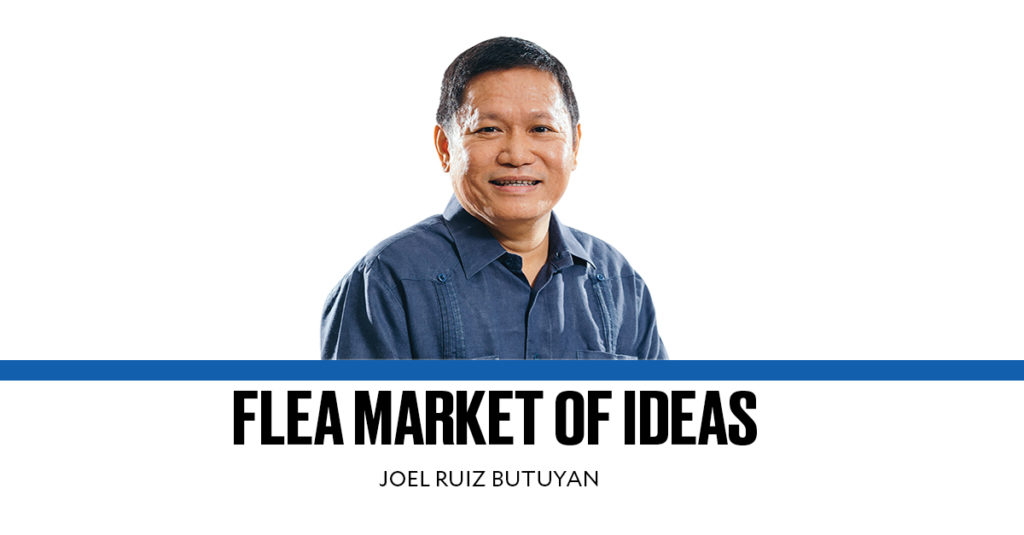It’s a Christmas season stripped of a large part of the rituals of merriment we’ve grown used to during our lives. The multiple parties, caroling children, firecracker noise, the retreat to our provincial roots, and even the blare of Christmas songs from our neighbors’ music players are either gone or kept to their barest minimum.
The holding of Christmas parties has been made a crime, with police chief Debold Sinas declaring that partygoers will be arrested. One even gets the feeling that it’s tactless and insensitive to play or listen to Christmas carols these days.
But we hold Christmas parties nevertheless, in small gatherings, divested of boisterousness, and under hush-hush conditions. We desperately need even a momentary break from nine months of prohibited socialization before we stride on for what may be another nine months more of inhibited social interaction. Perhaps the passage of the holiday season has been permanently programmed in our brains as an annual juncture in our lives that must be marked with some level of cheer and fraternization, no matter how dire and risky the days. I suspect that the heaviness in our hearts and the agony in our minds—all the strains on our mental health—will get aggravated if we let the Christmas season pass without even any form of gaiety.
Of course we must be deftly aware of the incapacitating and even deadly consequences of contracting and spreading the COVID-19 virus. We heighten these risks if we increase our crowd interaction this holiday season. We are thus instructed by our leaders to limit our parties to close family members, and to hold online gatherings for our bigger circles of family and friends.
Years after we’ve defeated the virus with a vaccine, we will look back to this Christmas season hopefully with enhanced senses to appreciate the many priceless benedictions that we take for granted in our lives. This has always been the life-defining function of trials and tribulations—they bestow us with a permanent vantage point from which to view the highs and lows of our lives.
As a parent to a 2-year-old child, I am most worried about the effects of the enforced absence of social interaction on children during the crucial years of their mental development. Will children who grow up cloistered inside their houses during the long months of the pandemic develop aversion to the outdoors and apathy to nature? When they become adults, will they be disadvantaged with stunted social skills? Shouldn’t we be allowing children to go to open parks and playgrounds, with monitored limits on their number?
My worries as a parent highlight the fact that the pandemic does not bring a one-dimensional problem to all of us. Our primary and most immediate concerns are to avoid getting infected with the virus and to prevent the spread of the virus in our communities.
But there’s an assortment of many other problems that can be spawned both by the kind and by the level of severity of the remedies imposed to deal with the virus. Apart from my concerns on the impact on children, the business- and employment-zapping consequences of overly stringent remedies will bring about a plethora of unwanted consequences that can negatively impact many of our countrymen beyond the lifespan of the virus. The cumulative effects of lost jobs, forfeited educational opportunities, foreclosure of homes and businesses, ruined credit standing, among many others, for many years beyond the pandemic cycle, can bring about greater damage and prolonged disruption in our lives.
We do not underestimate the very difficult balancing act faced by our leaders at this time. But when we hear of the use of “yantok,” of the cold-hearted resort to arrests, and the use of similar security solutions, we see that our government views the pandemic as no different from the drug problem and the communist insurgency—a one-dimensional peace and order problem instead of the conundrum of economic, social, cultural, and the multitude of other problems that it is.
Comments to fleamarketofideas@gmail.com
For more news about the novel coronavirus click here.
What you need to know about Coronavirus.
For more information on COVID-19, call the DOH Hotline: (02) 86517800 local 1149/1150.
The Inquirer Foundation supports our healthcare frontliners and is still accepting cash donations to be deposited at Banco de Oro (BDO) current account #007960018860 or donate through PayMaya using this link .


